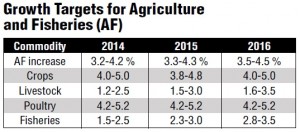MANILA, Philippines—Basic reading and mathematics skills of more than four million of the country’s poorest kids should improve as a result of a new World Bank-funded Department of Education project for grade school students.
In a statement Wednesday, the World Bank said its executive board approved a new $300-million loan to Learning, Equity and Accountability Program Support, or Leaps, project.
“Good reading and math skills are vital tools for learning and help children succeed in school and their future careers,” World Bank Philippines country director Motoo Konishi said. “These are skills that children need for understanding their lessons well, developing their problem-solving capabilities and critical thinking, and achieving their full potential as human beings and citizens of the country.”
Leaps will then provide support for the training of grades one to three teachers and school principals in reading and math. Around 36,000 teachers and 12,000 principals and head teachers will receive training and will later serve as resource persons for their peers and colleagues in their respective schools.
The project will also support government efforts to strengthen accountability and provide incentives for better performance. It will also invest resources to help improve the quality and availability of data related to the education of disadvantaged groups. Such data will help assess the extent of their access to basic education services.
The project will be implemented in Regions V (Bicol), VIII (Eastern Visayas), IX (Zamboanga Peninsula), Cordillera Administrative Region and Caraga, considered the five poorest regions in the Philippines.
These regions have high dropout rates especially between Grades 1 and 2, low performance in reading and math, and a significant population from indigenous communities and other disadvantaged groups.
Among the target beneficiaries of this project are teachers, public school students, students from indigenous communities, children with disabilities, children living in remote or difficult-to-access locations, and out-of-school youth.
These five regions have 14,121 elementary and secondary schools; 116,587 school teachers; and approximately 4,038,780 students.
According to Lynnette Perez, World Bank senior education specialist and project team leader, the Bank is supporting Leaps because it aims to provide better foundations for lifelong learning, a more efficient and effective education system, and will contribute to improving access and quality of education for indigenous groups, the disabled and out-of-school youths.


